
Take 5 minutes to catch up on NeurologyLive®'s highlights from the week ending September 29, 2023.

Take 5 minutes to catch up on NeurologyLive®'s highlights from the week ending September 29, 2023.

The professor of neurology and translational neuroscientist at Ludwig-Maximillian’s University Munich detailed the logic behind the ORION study, a new trial assessing AMX0035, an approved therapy for ALS, in patients with progressive supranuclear palsy. [WATCH TIME: 4 minutes]

In a phase 3 setting, the 2-component therapy showed positive trends or clinically meaningful improvements on motor and respiratory functions compared with previously approved enzyme replacement therapy.
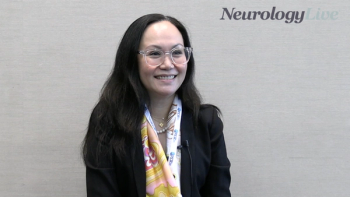
The associate professor of neurology at NYU Grossman School of Medicine discussed her talk at IFN 2023 on advancements in epilepsy treatments, highlighting new medications and surgical options. [WATCH TIME: 3 minutes]

Erin Longbrake, MD, PhD, associate professor of neurology at Yale School of Medicine, discussed the importance of understanding rare autoimmune disorders to effectively design clinical trials and treatment strategies, especially for heterogeneous conditions like NMOSD and MOGAD.

Over a 4-week treatment period, patients in both Lu AG09222 groups experienced about 2 fewer migraine days per month compared with placebo.
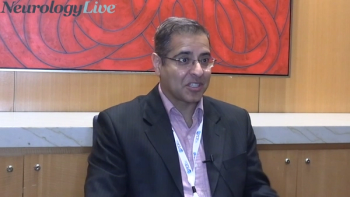
The professor of neurology and resident program director at MedStar Georgetown University Hospital discussed how Parkinson disease motor fluctuations are managed amid new, novel technologies incorporated in the field. [WATCH TIME: 4 minutes]

As part of our monthly clinician spotlight, NeurologyLive® highlighted neueomuscular expert Peter Kang, MD, director of the Paul and Sheila Wellstone Muscular Dystrophy Center and professor of neurology at the University of Minnesota.
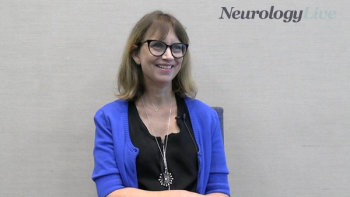
The codirector of the Mount Sinai Epilepsy Program at the Icahn School of Medicine at Mount Sinai talked about the Women in Neurology and Leadership session she spoke in at IFN 2023. [WATCH TIME: 3 minutes]

Patients who self-identified as Black and were living in less affluent neighborhoods were less likely to be seen in one large memory clinic as well as have more severe dementia at initial visit.

After deliberating, the FDA committee expressed concerns about the mechanism of action of NurOwn, manufacturing details, and consistency of data.

By targeting tau-ack280, ADEL-Y01 inhibits tau aggregation and propagation, and promotes microglial tau clearance.
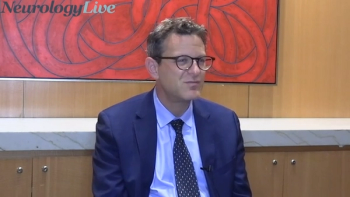
The director of the Center for Brain Health and Alzheimer Prevention Clinic at Florida Atlantic University provided perspectives on the multimodal, multitargeted approach needed to treat Alzheimer disease. [WATCH TIME: 5 minutes]

The phase 3 SYMPHONY trial assessing AXS-12, a selective norepinephrine reuptake inhibitor for narcolepsy, was initially expected in the third quarter of 2023.
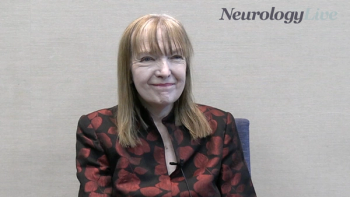
The professor of neurology at Stony Brook University Medical Center discussed the progress observed in the field of multiple sclerosis and the lack of effective treatments for progressive forms of the disease. [WATCH TIME: 3 minutes]

The chief of the Movement Disorders Division at Mass General Hospital provided context on the goals behind the research careers reimagined course at the recently concluded ANA Annual Meeting.

Coya Therapeutics expects to release data from the biomarker analyses of COYA 302 and publish the full results from the trial in a peer-reviewed journal in the second half of the year.

Although research supports the use of physical therapy as an effective treatment for Parkinson disease, implementation factors including type, timing, frequency, and durability of outcomes remain mainly untouched.
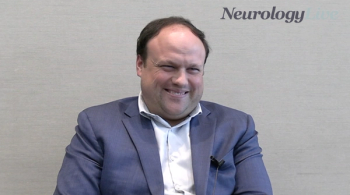
The associate professor of neurology at Vanderbilt University Medical Center discussed the progress in stroke care, focusing on ischemic strokes and cerebral hemorrhages, and their connection with vascular diseases and cognitive disorders. [WATCH TIME: 3 minutes]

Between ages 65 to 69, gene carriers of APOE ε4 could detect an average of about 3.2 of the smells presented, compared with about 3.9 smells for noncarriers of the gene variant.
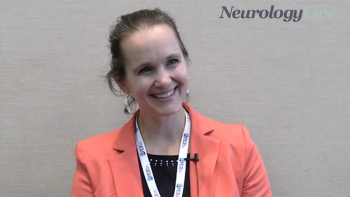
The associate professor of neurology at Yale School of Medicine discussed the differentiation of neuromyelitis optica spectrum disorders and myelin oligodendrocyte glycoprotein -associated disease from multiple sclerosis at IFN 2023. [WATCH TIME: 5 minutes]

Additional biomarker findings from up to 2 years of DNL310 treatment suggest positive changes in adaptive behavior and cognition as well as improvement in auditory function among pediatric patients with Hunter syndrome.
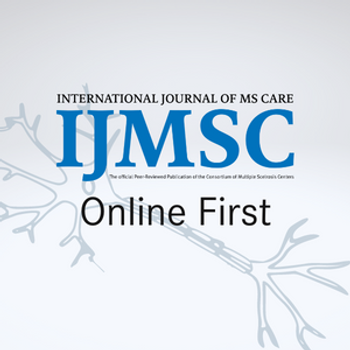
Review the latest peer-reviewed articles dedicated to the multidisciplinary management of multiple sclerosis published in the International Journal of MS Care.

In an integrated meta-analysis of the HEALEY ALS platform trial and RESCUE-ALS trial, 30mg of CNM-Au8 resulted in 59% decreased risk of mortality among participants with ALS compared with PRO-ACT matched placebo over long-term follow-up.
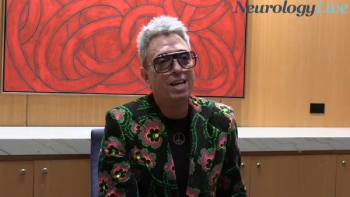
The director of the Duke ALS Clinic at Duke Health provided perspective on the issues with getting newly approved ALS therapies to patients who need them the most. [WATCH TIME: 4 minutes]

Virginia Gao, MD, PhD, a movement disorders fellow at Weill Cornell Medicine, discussed several topics related to the use of biomarkers in the prodromal stages of neurodegenerative disorders like Parkinson disease.
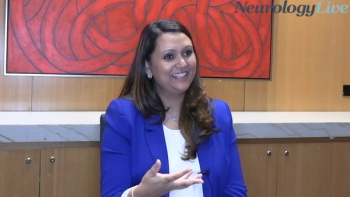
The director of the MedStar Georgetown Headache Center provided insight on the excitement behind PACAP, how it may offer an alternate way of treating migraine, and where research behind it currently stands. [WATCH TIME: 4 minutes]

Here's some of what is coming soon to NeurologyLive® this week.

A recent analysis showed a form of tau that could serve as a biomarker to track and explore whether investigational tau-based drugs are effective against Alzheimer disease.
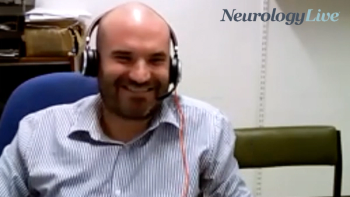
The movement disorder specialist at Cambridge University Hospitals NHS Foundation Trust discussed the rise of wearable technology for managing Parkinson disease to potentially empower patients and monitor the disease at early stages. [WATCH TIME: 4 minutes]